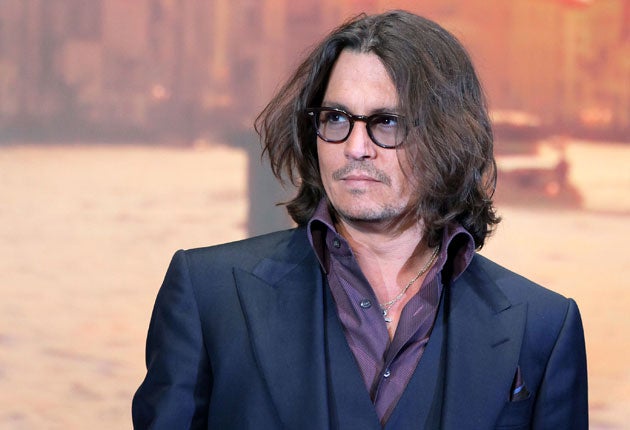YouTube takes on television with star cast

Your support helps us to tell the story
From reproductive rights to climate change to Big Tech, The Independent is on the ground when the story is developing. Whether it's investigating the financials of Elon Musk's pro-Trump PAC or producing our latest documentary, 'The A Word', which shines a light on the American women fighting for reproductive rights, we know how important it is to parse out the facts from the messaging.
At such a critical moment in US history, we need reporters on the ground. Your donation allows us to keep sending journalists to speak to both sides of the story.
The Independent is trusted by Americans across the entire political spectrum. And unlike many other quality news outlets, we choose not to lock Americans out of our reporting and analysis with paywalls. We believe quality journalism should be available to everyone, paid for by those who can afford it.
Your support makes all the difference.Google is to sprinkle some Hollywood stardust over its YouTube video website, as it goes head-to-head with traditional television in the battle for a new generation of viewers.
The company is understood to have approached several of the top Hollywood talent agencies in the hope of persuading major stars to create original content for YouTube, and even to start new "channels" on the site.
The talks raise the intriguing possibility that fêted actors could soon be launching their latest projects not on television or in the cinemas, but on the internet.
YouTube, which began as an interminable stream of You've Been Framed-style home videos, was bought by Google in 2006 and has since expanded into a venue for increasingly professional content, first through the addition of copyright-approved music videos, and then through original drama.
It is this side of the website that Google is planning to emphasise as YouTube celebrates its sixth anniversary in May, and which has prompted the new push in Hollywood. It is offering to pay stars a cash advance and to then share revenues from advertising, which could be either clickable ads on the website next to their videos, or television-style commercials which play before or during the programme.
Creative Artists Agency, home to Brad Pitt and George Clooney, and William Morris Endeavor Entertainment, which represents Johnny Depp and Gwyneth Paltrow, are among the large talent agencies to have been approached by Google, it was reported.
More than 2 billion YouTube videos are watched every day. Over 24 hours of video are uploaded every minute, it claims, and more footage is uploaded to the site in 60 days than the three largest US television networks broadcast in 60 years.
But while YouTube was a pioneer of video on the web, it risks being eclipsed by other more professional sources of video content.
A revolution is underway. The US networks created Hulu to stream television programmes on demand on the web, and many shows are also put online on the TV networks' own websites. Meanwhile, Netflix, which began as a mail-order DVD rental business, also now streams recently-broadcast shows. Social networks such as Myspace have also been encouraging independent film-makers to produce programmes for their sites. In many countries, new places to watch programmes online have sprung up, most notably the BBC iPlayer and similar ventures by other channels in Britain.
A new survey out in the US yesterday from Nielsen, the official TV ratings firm, which has now expanded into monitoring the web, says that people are watching more and more video online, presenting a growing threat to traditional television.
The number of online viewers rose only 3 per cent in the year to January, but the amount of time they spent watching video jumped 45 per cent, suggesting they are seeking out full-length shows.
On YouTube, the proportion of its top 100 most-watched videos which are professionally made is surging, to 86 per cent in the past three months according to Hudson Square Research, and that is turning YouTube into a much more lucrative business for Google.
Advertisers are much less wary of hawking their wares alongside professional content, as they have done with traditional television since its inception, than they are alongside potentially controversial or poor-quality home video.
Join our commenting forum
Join thought-provoking conversations, follow other Independent readers and see their replies
Comments